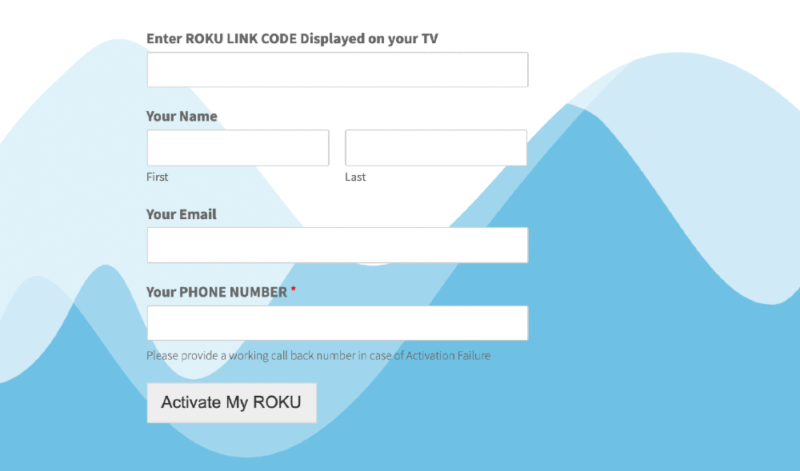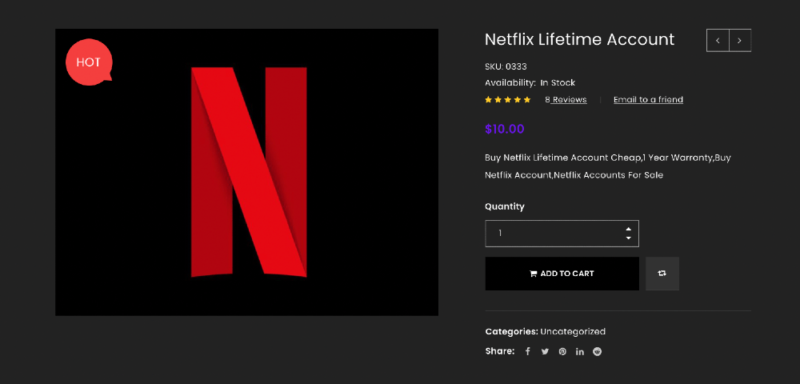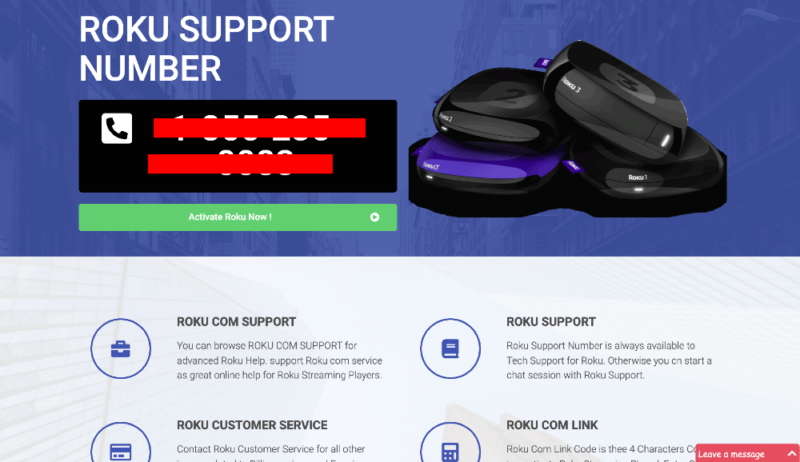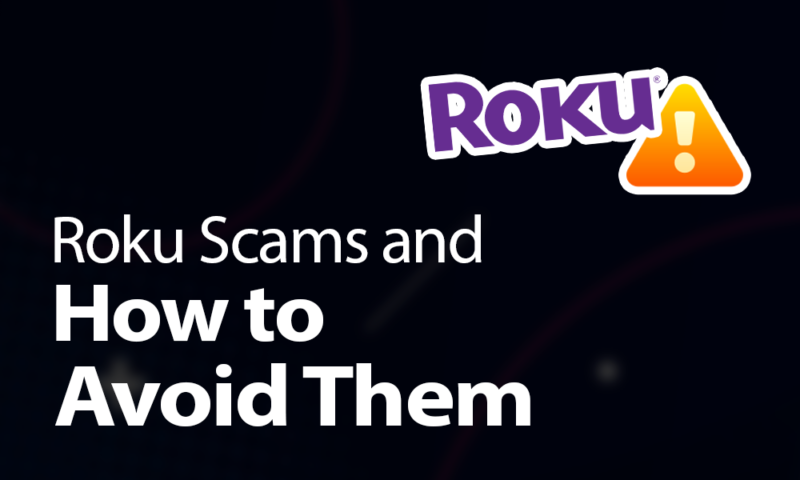Roku Scams in 2024: How to Spot Them and What to Do
If you already have a Roku or are thinking of purchasing one, you need to be aware of the many current Roku scams. Read on to find out about the different scams that are circulating and how you can protect yourself from them.
Roku scams are more common than you might think. Since Roku devices and smart TVs are connected to the internet, they’re the perfect conduit for fraudulent activity.
Before we get into the nitty-gritty of this topic, let’s be clear on one thing: Roku never charges for account setup, activation, a subscription service of its own, updates or tech support. If you ever get a message regarding a fee for any of these things, it’s a scam.
Key Takeaways:
- Roku does not charge for device activation or setup, account creation, tech support or updates. It’s always free.
- There’s no Roku subscription fee. Deals such as lifetime access to Netflix do not exist.
- Roku does not need access to your device or computer, so do not let anyone take control.
- If you are asked to call a number, respond to an email, provide personal information or pay for a service, cease contact immediately and report it.
A Roku scam can take many forms, but the end result is always the same: You pay for a service that doesn’t exist. Scammers are clever. They sound professional, gain your trust and ultimately trick you into sending them money. In this article, we’ll explain the many types of Roku scams in circulation and how you can avoid falling victim.
Roku Activation Scams
One of the most common scams is the Roku activation scam. There are a couple of ways this grift can occur.
The first approach happens when you get ready to set up your Roku device or TV. Once you plug it in, an error message pops up on the screen telling you that you need to call a support phone number to activate it.
The second way is by letting you find the scammer. You browse the internet for something like “Roku activation” and end up clicking on a website that’s not legitimate. The website is made to look like the real deal, perhaps with Roku logos, images and information designed to look authentic.
Once you’re on the site, it might ask you to enter your contact details, allowing the scammer to contact you directly. Alternatively, the site might provide a fake Roku activation code which will be immediately rejected by Roku, prompting you to call the scammer’s number.

With either of those methods, once the scammer has you on the phone, they’ll say you need to pay an activation fee and likely try to charge you for a nonexistent Roku subscription, account setup or tech support.
Other Roku Scams
Roku scams don’t just appear at the moment of activation. Scammers might target you when you’re trying to create your account, set up your Roku preferences or get tech support. Let’s go over some of the other Roku scams you might come across.
Roku Account Creation and Setup
Roku never charges for account creation or setup, so if you come across anyone trying to charge you for that, cease contact immediately. Scammers posing as Roku support agents try to charge your credit card to create a Roku account, register your device and get it set up. There are plenty of articles and videos on Roku to help you with this for free.
Fake Roku Deals
After the initial device cost, a Roku can be used entirely for free. Subscribing and paying for premium streaming services, such as Disney+ or Netflix on Roku, is optional. Still, scammers try to persuade Roku customers to pay for phony subscription services.
One example of this is the fraudster telling the user that they need a paid subscription to watch content on Roku. Other fake deals include lifetime subscriptions to Netflix, Hulu and other services, which do not exist.

Fake Roku Support
Roku support is available for free on the official Roku website. There’s a host of helpful information and a Roku community, as well as live chat and email support. Anyone trying to sell you a Roku support subscription or charge you a fee is trying to scam you.

Never pay for Roku support, even if they try to reel you in with extra help for technical issues such as network problems. You will never receive such support. Any help you need is available from Roku (we also have a Roku troubleshooting guide that can help).
Paid Roku Updates
Another scam we’ve heard about is associated with Roku device updates. Roku streaming devices don’t turn off automatically. They’re designed to stay on, connect to the internet and apply any updates right away. Updates are completely free, but scammers will make you think you need to pay for an update.
Device Takeover
Never let anyone take control of your Roku device or computer. If anyone asks, discontinue contact immediately. If they gain control of your Roku through remote access, they can activate it with their own account. That might not sound so bad, but it allows them to disable your Roku and demand credit card payment to reactivate it.
There’s no need for someone to have access to your computer to set up your Roku or provide tech support. Scammers claim they need you to grant access, but once you do, they can install malicious software to help them steal your personal and financial information. The scammer may even ask you to pay for the software, claiming it’s for your protection, or claim that your device is already infected and you need to pay them to remove it.
Roku Phishing Emails
Roku scams aren’t only aimed at new users. Many existing customers receive phishing emails claiming to be from Roku. Such emails try to make the user believe that their Roku has been deactivated and they need to call to get it reactivated. Calling the number in the email sends you straight to a scammer who says you need to pay a fee for reactivation.
Counterfeit Rokus
A Roku scam could even happen at the time of purchase. Like with many other popular devices, counterfeit Rokus are never too far away. Such knockoff products are usually made from low-quality materials and will likely have a shorter life span.
Plus, since they’re usually mass-produced in China, they could be dangerous if they don’t comply with required electrical safety standards. To avoid purchasing a fake Roku, be sure to buy your Roku device from a reputable retailer.
What to Do About Roku Scams
Roku scams aren’t going to disappear overnight, so it’s important that you recognize a scam and know how to protect yourself.
When you first activate your device, only do so through the official Roku website. The same goes for tech support or general customer support. In case you end up in the wrong place, understand that Roku agents never ask for personal details like your date of birth, Roku password or social security number.
There’s also no need for a Roku agent to gain access to your computer, obtain any other passwords or install any software. Do not comply if anyone asks you to do this.
If you come across someone trying to sell you services for Roku activation, account setup, updates, support or anything else, ignore them and stop contact. Any emails you receive on the subject should be reported and deleted.
If you come across any of these things, the best thing to do is not respond. However, if you think you’re already a victim of a scam, you should call your credit card provider or bank and ask for any charges to be reversed. You should also report it to the Federal Trade Commission (FTC) and FBI with as much information as possible.
Final Thoughts
If scammers see the opportunity to defraud someone, they’ll do it. For that reason, it’s essential to recognize and avoid the many Roku scams that are circulating right now — scams that can occur whether you have an old or new Roku device.
We’ve already said it, but it’s important that you understand Roku never charges for anything other than the device cost and any accessories you might purchase. Any request for payment for Roku activation or setup, account creation, technical support or lifetime subscriptions should be ignored, as should any request to take over your device.
Have you ever come across a Roku scam? Did you see something that we haven’t covered in this article? Let us know in the comments and you might help a reader avoid another scam. Stay safe and thanks for reading.
FAQ
No, Roku does not charge a one-time fee. It does not charge for device activation or setup, account creation, technical support or lifetime subscriptions. The only thing you will pay for is the Roku device itself, any accessories you buy with it and any separate premium subscriptions like Netflix or Hulu. Always make sure you’re on the official Roku website.
Yes, hackers can exploit any device connected to the internet, including a Roku. To protect yourself, have a secure password on your accounts, including your WiFi connection.
Roku does not provide subscription services of its own. If you are being charged for a monthly or annual subscription, you’ve been scammed. You should call your credit card company or bank, and report the scam to the FTC and FBI.
Roku scammers try to charge users for activation and setup, account creation and tech support — all of which are free from Roku. They’ll tell you to phone a “support number” and swindle you from there. You might also come across “lifetime subscriptions” to popular services like Netflix or a Roku subscription, which simply don’t exist. You might also see something similar in an email.


